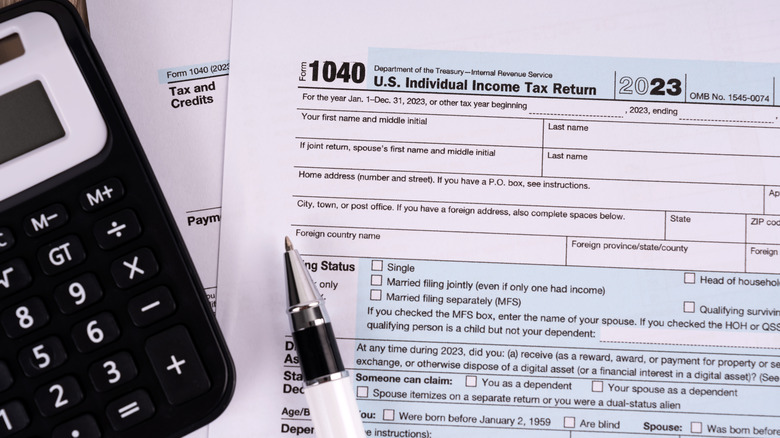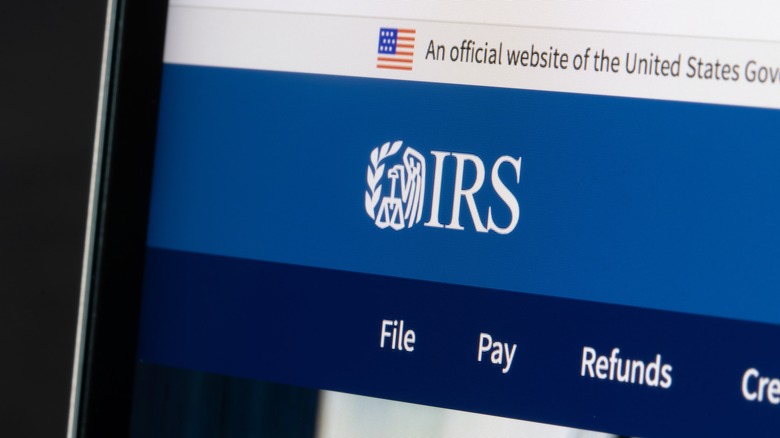What You Need To Know About IRS Tax Refunds In 2025
With 2024 officially coming to a close, 2025 is coming in hot. This being the case, it soon will be the time of year for everyone's favorite annual duty as a law abiding U.S. citizen: paying your taxes. Yes, that's right folks, it's almost time to crack open your TurboTax account and feed it your earnings information from all those hours of hard work you put in from the previous year.
But before you start grueling about how much money you might owe to the government, take a second to breathe, because there may actually be a silver lining amidst the mundane. The IRS recently announced that certain tax payers may be qualified for some significant extra refunds. However, don't start looking for flights and hotel reservations to Turks and Caicos quite yet. Along with that potential extra refund there's also a handful of other new information and opportunities you'll want to fully comprehend before filing. So with all of that being said, let's take a look at everything you'll need to know about IRS tax refunds in 2025.
If you forgot to file your taxes in 2020
If you got caught up in the madness that came with the 2020 COVID-19 Pandemic and forgot to file your taxes for that year, don't worry. The IRS has launched a new incentive aimed at those who didn't file their 2020 tax returns and are owed substantial amounts of money. Those amounts range between $932-$6,600, and the IRS will still accept filings for individuals that qualify as long as they send it in by January 14th, 2025. The amount you will receive, however, depends largely on your annual income from 2020, as well as the size of your family.
For those who made less than $50,594 in 2020 and have a family with three or more qualifying dependents (children) that didn't file their taxes, your return would likely be in the $6,600 range. If you made more money than that or have less than three or no children at all, your return will be less than the aforementioned amount. Now for those that forgot to file a return for any of the years between 2021-2023 also, the good news is that the IRS still accepts claims filed within three years from their due date. This means you can still file those returns and get your refund.
Filing your 2024 IRS tax return
January 27th, 2025, is when the official window opens up to file your individual 2024 federal tax returns. You have between then and April 15th, 2025 to file. The easiest way to receive your return is by E-filing with your direct deposit information. By doing this, you will receive your return within one to three weeks of it being processed. For those that choose alternative methods of receiving their refunds like E-filing or paper filing and having your check mailed to you, you will have to wait significantly longer to receive your refund. For that reason, it's best you E-file and opt in for direct deposit. E-filing can be easily done directly through the IRS website for free.
For those looking for information regarding how much they may owe when filing their taxes next year, you'll want to check out this release by the IRS for more information. In this announcement they go into detail about different tax brackets for different levels of income as well as little-known ways to get a bigger tax refund like the EITC (Earned Income Tax Credit.)


